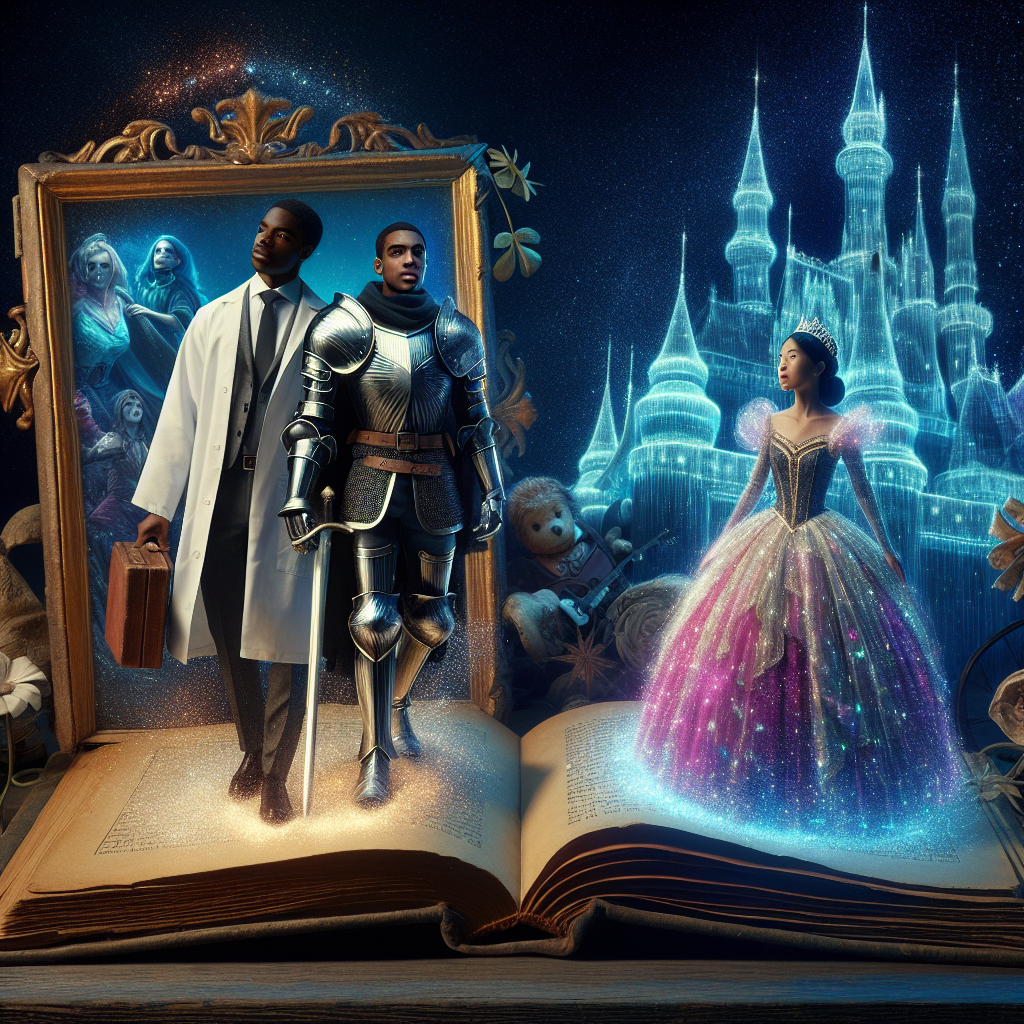Disney's Bold New Era: How 'Woke' Storytelling is Redefining Classic Magic for a Modern Audience
In an ever-evolving cultural landscape, few companies have faced the scrutiny and adoration that The Walt Disney Company has experienced. The term “woke” has become a buzzword in recent years, often associated with social awareness and activism. For Disney, this means reimagining its classic stories to resonate with contemporary audiences. As the company embraces this new era of storytelling, fans and critics alike are left to wonder: what does 'woke' really mean for Disney, and how is it transforming the magic we’ve come to know and love?
Revisiting Classic Tales: A Fresh Perspective
Disney has long been known for its enchanting storytelling, but its recent forays into 'woke' narratives signify a shift in how these stories are approached. Traditional fairy tales, often steeped in outdated stereotypes and gender roles, are being rewritten to reflect a more inclusive perspective. For instance, films like the live-action remake of "Mulan" showcase a strong female protagonist who defies traditional expectations, breaking away from the damsel-in-distress archetype that has dominated Disney's earlier narratives.
This fresh perspective does not just stop at gender representation. Disney is also making strides in embracing diversity across race, ethnicity, and culture. With projects like "Raya and the Last Dragon," the studio explores Southeast Asian culture, providing a rich backdrop for its storytelling while also featuring a diverse cast. This move not only broadens Disney's storytelling scope but also introduces younger audiences to cultures they may not have encountered before, fostering empathy and understanding.
Inclusive Characters: Celebrating Diversity
One of the most significant aspects of Disney's 'woke' storytelling is its commitment to inclusivity. By incorporating characters from various backgrounds, Disney aims to create a sense of belonging for all viewers. The success of films like "Frozen II" and "Encanto" highlights this shift, as they delve into themes of identity, family, and cultural heritage. The character of Mirabel from "Encanto," for example, embodies the complexities of family dynamics while celebrating Colombian culture, resonating with audiences around the world.
Moreover, Disney's animated series and films are increasingly featuring LGBTQ+ characters and storylines. The inclusion of characters like Amity Blight in "The Owl House" has been met with enthusiasm from fans who see themselves represented on screen. This progressive approach not only enhances the storytelling but also aligns with the values of younger generations who prioritize representation and inclusivity in media.
Modern Themes: Addressing Real-World Issues
Disney's new narrative focus goes beyond representation; it also tackles real-world issues, such as mental health, environmentalism, and social justice. Films like "Soul" and "Luca" venture into deeper, more philosophical topics, encouraging audiences to reflect on their own lives and the world around them. "Soul," for instance, addresses the concept of purpose and identity, connecting with viewers on a personal level that traditional Disney films may not have achieved.
In addition, the integration of environmental themes showcases Disney's commitment to sustainability. The studio has pledged to reduce its carbon footprint and promote conservation efforts, which is increasingly reflected in its content. "Finding Dory" not only narrates an adventurous tale but also highlights the importance of ocean conservation, making it not just a story but a call to action for its viewers.
The Backlash: Navigating Criticism and Support
With any significant shift comes a wave of criticism, and Disney's embrace of 'woke' storytelling is no exception. Some fans argue that the changes compromise the essence of the beloved classics, labeling the new narratives as overly political or forced. Critics express concern that Disney is straying too far from the formula that made it a household name, fearing that the magic of nostalgia is being overshadowed by contemporary social issues.
Yet, despite the backlash, there remains a strong support base that applauds Disney's efforts. Many viewers appreciate the company's willingness to evolve and reflect modern values, arguing that storytelling should adapt to the times. The success of new releases and the growing number of diverse characters suggest that there is a significant audience eager for these narratives. Ultimately, Disney's challenge lies in balancing tradition with innovation, crafting stories that resonate across generations.
As we look ahead, it’s clear that Disney’s 'woke' storytelling is not just a trend but a pivotal shift in the way stories are told. By embracing diversity, inclusivity, and relevant themes, Disney is redefining what it means to create magic for a modern audience. Whether you’re a long-time fan or a newcomer, there’s no denying that the world of Disney is evolving, and the possibilities are as limitless as our imaginations.

No comments yet. Be the first to comment!